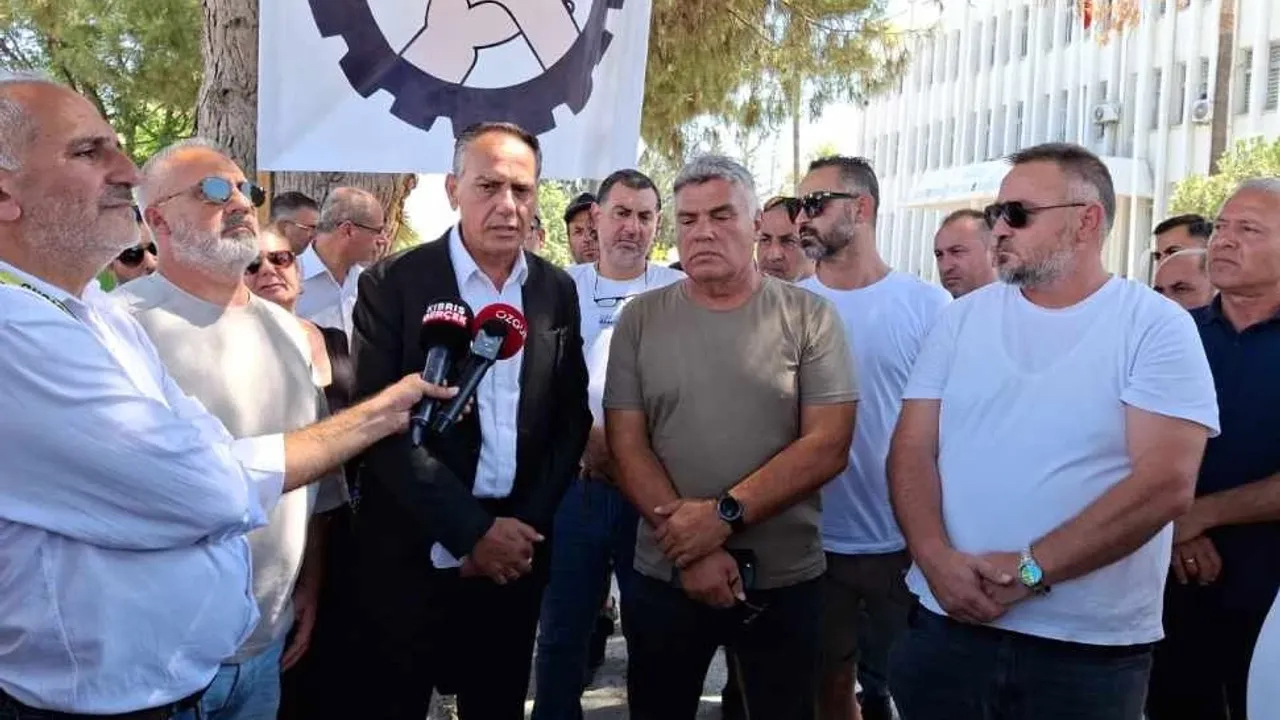The strike called on by employees of the north’s Koop Bank and its subsidiaries last week was brought to an end on Friday as a deal was struck by workers and the ruling coalition to not proceed with the planned package of austerity measures which was to be imposed on the workers.
Workers had demanded that the company and the ruling coalition formally distance themselves from an eight-item list of austerity measures, which includedthat those receiving a pension stop work, the 13th salary be abolished, the cost-of-living allowance (CoLA) not be paid, and that Eid bonuses be cut in half.
On Friday ‘prime minister’ Unal Ustel’s undersecretary Durali Guclusoy said that he and Ustel would meet union leaders to finalise the details of a new collective labour agreement which will set out the running of the Koop Bank’s subsidiaries going forward.
“The suspension of retirees’ work and the deductions applies to workers, which were previously on the agenda, have been suspended until a new agreement is signed,” he said.
Trade union Koop-Sen leader Mehmetali Guroz said negotiations would begin on Monday “to prepare a protocol which will balance income and expenses”, and that workers “will not step back regarding previously signed and ongoing agreements”.
He said the new agreement will be signed within three months, but that “our intention is to sign it within a week at the latest”.
Earlier in the day, Guclusoy had been seen outside Ustel’s office in an intense discussion with striking workers, and was then approached by a journalist, before attempting to take the journalist’s phone out of his hand while saying “don’t film now, son, what is there for you to film? There is nothing to film”.
This video prompted a response from the Cyprus Turkish journalists’ union, which wrote that “in societies where the press is not free, democracy is also in danger”, and that “we will not allow press freedom and democracy to be undermined.
“Some public officials have recently made a habit of targeting journalists, blaming the media for their problems, and occasionally obstructing members of the public from doing their jobs,” they said.
“Every action taking in a public space is an event which journalists must follow, and this cannot be prevented. If [Guclusoy] did not want his discussion to be reflected in the public, he should not have initiated this dialogue in public,” they said.






Click here to change your cookie preferences